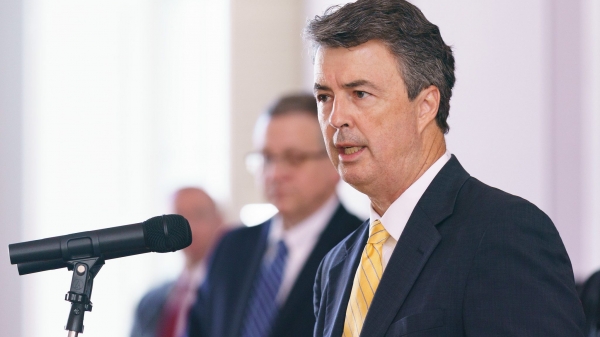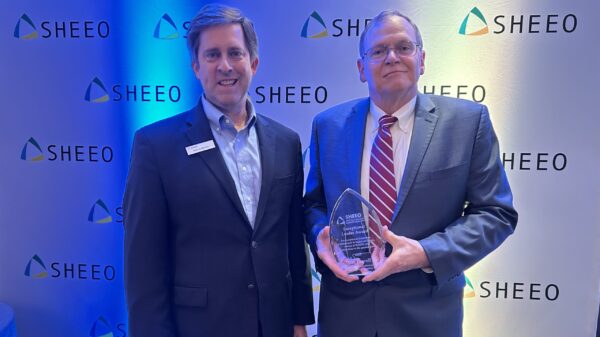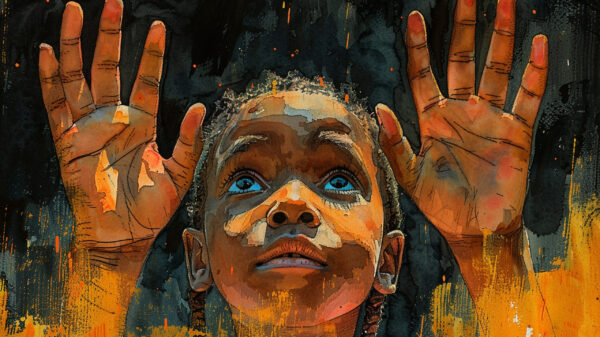Every nation has its myths—stories we tell to give meaning to the past and shape our identity. When those stories are grounded in truth, they can inspire courage, sacrifice and unity. But when myth becomes a mask for lies—or worse, a weapon to justify exclusion—it poisons our politics and corrupts our sense of who we are. It blinds us to injustice. It seduces us into trading truth for comfort. And it convinces us that the only way forward is to go back—back to a past that never really existed.
Ronald Reagan was the first president to use the phrase “Make America Great Again,” but what he meant bears little resemblance to its usage today. Reagan’s vision of greatness was optimistic, not resentful. “America is too great for small dreams,” he declared—calling not for grievance but for confidence, not exclusion but opportunity. His rhetoric was aspirational, not punitive.
Today, the same phrase is wielded with bitterness and exclusion. It evokes a yearning for a mythologized past—a past that, for many Americans, was marked not by greatness but by violence, marginalization and fear. The greatness being summoned now is one of rigid hierarchy and forced conformity, cloaked in grievance and dressed up as tradition.
Myth, when weaponized, becomes propaganda. A story becomes a lie the moment it’s stripped of context and deployed to control rather than enlighten. It’s no accident that so many voters today cannot answer a basic question like “Why did we fight the Civil War?” I watched a man in his 40s pause when asked. He fumbled, then said, “States rights? I don’t know.” That wasn’t thoughtfulness. It was confusion—cultivated by years of talk radio and partisan media feeding people narratives designed to divide.
The Republican Party has spent decades perfecting this playbook. Talking points aren’t just crafted—they’re hammered into public consciousness through coordinated media networks, social media influencers, and ideological echo chambers. It’s not persuasion. It’s saturation.
Meanwhile, Democrats have largely failed to meet the moment—still clinging to the idea that fairness will prevail if they just wait long enough. But hope isn’t a strategy, and silence doesn’t counter propaganda.
Of course, partisan media is nothing new. Jefferson had his favored news sheets. Hamilton backed what would become the New York Post. But what we’re seeing now isn’t simply rival factions with strong opinions. It’s the deliberate erosion of shared reality, replaced by mythologies designed to obscure, divide and inflame.
Throughout history, myths and religion have been powerful tools—not just to inspire, but to control. Empires were built not only with swords but with stories: tales of divine destiny, sacred authority and moral supremacy. When rulers needed to justify cruelty, they often turned to myth. When they needed obedience, they cloaked their laws in scripture.
It is no different today. The modern Republican Party has been hijacked—not by conservatives in the traditional sense, but by those who peddle dominance and disguise it as divine will. They don’t seek virtue. They seek control.
Which raises the question: has anyone ever seriously said, “Make Alabama Great Again”? Probably not. And for good reason. Alabama’s past doesn’t lend itself to nostalgic fantasy. To invoke greatness here would require naming an era—one marked by segregation, violence and resistance to justice. The 1950s? When Black citizens were beaten for trying to vote? The 1960s? When children died in church bombings while officials defended “states’ rights” as a euphemism for white supremacy?
Alabama has always had more potential than power. And when greatness has flickered, it came not from entrenched authority but from courageous defiance—led not by those in office, but by those locked out of it. The Montgomery Bus Boycott. The march across Selma’s Edmund Pettus Bridge. The Civil Rights and Voting Rights Acts. These were not gifts from the powerful—they were won by people willing to speak, march and bleed for freedom.
But rather than build on that legacy, our state legislature is dragging us backward—toward a theocratic model where obedience is mandated and dissent is treated as sin. The Founders envisioned religious freedom as the right to believe or not believe without fear of punishment. What we see today is the weaponization of religion to enforce laws that dictate how others must live.
This isn’t faith. It’s domination disguised as doctrine.
And the consequences stretch far beyond Alabama. This radicalism reaches into every statehouse, emboldening lawmakers to pass laws increasingly disconnected from precedent, accountability, and the people they claim to serve.
Yes, the political pendulum swings. And while Democrats won the presidency in 2020, the Republican Party responded by swinging harder to the right—radicalizing in state legislatures, rejecting the results of a legitimate election, and embracing grievance as its governing principle. Here in Alabama, that shift has been brewing for over a decade. In 2010, Republicans took control of the state legislature and every constitutional office, but back then, most were conservatives—not radicals. They believed in limited government, fiscal discipline and personal liberty. Today, too many have traded those principles for performative outrage and religious authoritarianism, mistaking control for conviction.
Most Americans—and most Alabamians—don’t live on the fringes. They’re not shouting into microphones or storming capitols. They are working, raising children, caring for aging parents. They believe in decency. In fairness. In the basic idea that no one should be forced to live by someone else’s religious rules.
And yet these are the people most ignored—by media, by money, by politicians who chase outrage because that’s where the votes are. The real Alabama is quieter, more thoughtful, and far more complex than its slogans.
If we truly want to make Alabama great—perhaps for the first time—we must stop mistaking power for principle. We must reject the comforting lies that shield the powerful and confront the hard truths that can actually set us free.
Greatness—real greatness—doesn’t come from longing for a past that never was. It comes from choosing the future with open eyes. From telling the truth, even when it’s uncomfortable. From refusing to let fear and fiction govern our lives.
Every generation must decide which stories to believe—and which ones to leave behind.
So let’s be the ones who finally say: This is not who we are. And it will not be who we become.

















































